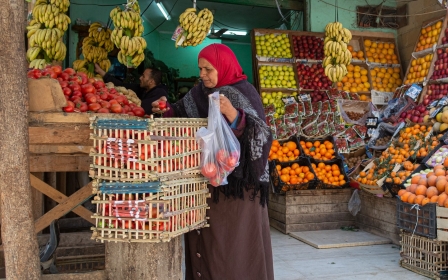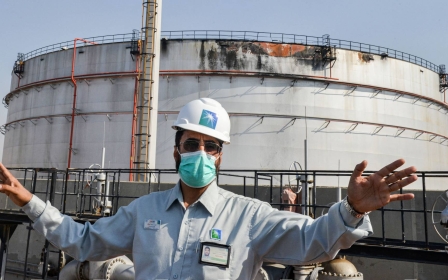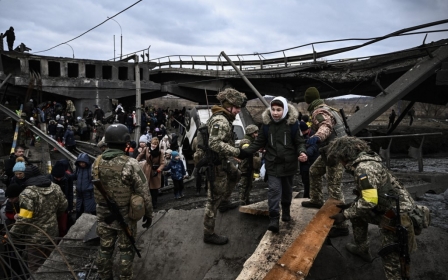Russia-Ukraine war: Italy PM to sign new Algerian gas deal, cutting Moscow imports
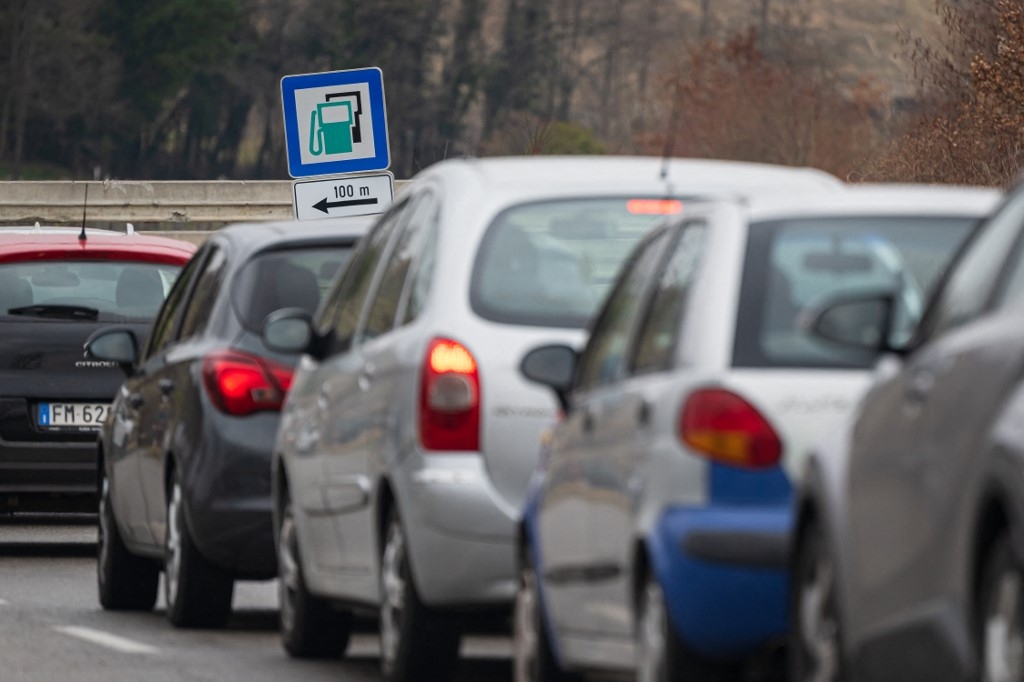
Italy's prime minister plans to sign a new gas deal with Algeria in the coming days, as Rome and other European powers work to reduce dependence on Russian oil.
Prime Minister Mario Draghi will visit Algeria on Monday to sign the deal, the latest in a series of international moves that seek to cut Russia off from the global economy.
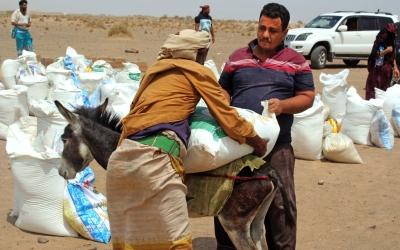
New MEE newsletter: Jerusalem Dispatch
Sign up to get the latest insights and analysis on Israel-Palestine, alongside Turkey Unpacked and other MEE newsletters
According to most recent estimates, about 40 percent of Italy's total consumption of gas comes from Russian sources. Meanwhile, Algeria, Italy’s second-largest supplier, has provided about 31 percent. This new deal, however, is set to see Algerian supplies increase dramatically.
Currently, the Trans-Mediterranean pipeline, which carries gas from Algeria to Italy, is only operating at about two-thirds of capacity, according to an Italian government official, quoted by the Financial Times. That leaves room, the official explained, for a quick increase in supplies.
"This can have an immediate impact - you don’t need to build more pipelines or other new infrastructure," the official said.
The official said that there is the potential to replace at least a third of the Russian supplies with Algerian imports almost immediately.
EU countries and others have been increasingly insistent on finding ways to end trade and other agreements with Russia, as its brutal invasion of Ukraine continues to flout international norms.
'Diversification of energy supplies'
Draghi has stressed the need for Italy to urgently diversify its energy supplies in particular, especially given the risk that Russia could retaliate against EU sanctions by shutting off the flow of gas to Europe.
"Diversification of our energy supplies is something to aim for regardless of what happens with Russian gas supplies in the immediate future," Draghi told lawmakers last month. "We cannot be so dependent on the decisions of just one country, as this jeopardises our freedom, not just our prosperity."
Becoming the first EU country to shut down Russian supplies, last week Lithuania completely cut off Russian imports. Meanwhile, several other EU states are positioning themselves to do the same.
Germany has said it seeks to be "virtually independent" from Russian oil by the end of this year and from gas by mid-2024. Looking to Qatar, Berlin recently signed a long-term agreement for the supply of liquefied natural gas, which Robert Habeck, economy minister, said would reduce its reliance on Russian supplies.
The Italian delegation led by Draghi on Monday will include foreign minister Luigi Di Maio and Roberto Cingolani, the minister for ecological transition, as well as the head of Eni, the Italian energy company, which has strong ties with Algerian energy company Sonatrach.
Middle East Eye delivers independent and unrivalled coverage and analysis of the Middle East, North Africa and beyond. To learn more about republishing this content and the associated fees, please fill out this form. More about MEE can be found here.


